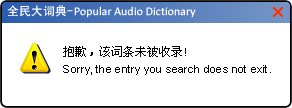做【zuò】
1. make; do; produce; manufacture 2. do; act; engage in 3. be; become; be used as; act as
[动]1、把原料加工成可使用的物品 2、从事某种工作或活动 3、充当、担任

自己做蛋糕庆祝生日是非常有意义的事情。
It is meaningful to make a cake for one's own birthday.

他中学毕业后就做起了生意。
He started to do business after his graduation from the middle school.

我的性格决定我一辈子都做不了官。
My character determines that I would never become an official.
做法【zuò fǎ】
way of doing or making a thing; method of work; practice; behavior
[名]处理事情或制作物品的方法

中国菜的做法复杂而有趣。
Chinese cooking is complex and interesting.
做工【zuò gōng】
1. do manual work; work 2. workmanship
[动]1、干活;从事体力劳动 [名]2、制作的技术或质量

他曾经在美国做工,英语口语水平不错。
He once worked in the U. S, so he speaks English quite well.

这条地毯是用纯羊毛手工织成,做工非常精细。
This carpet is made of pure wool and it is exquisite in workmanship.
